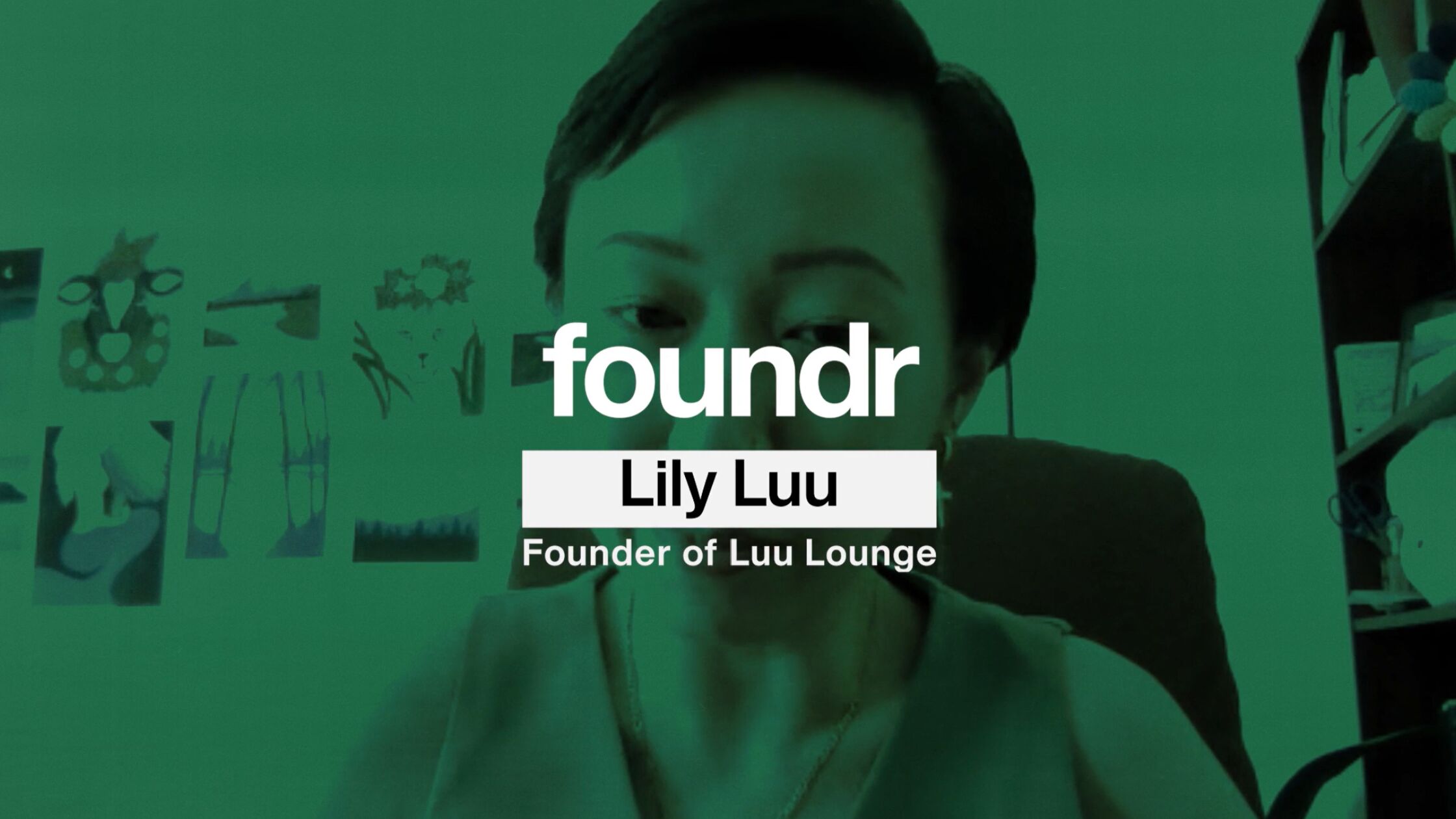Ever wonder how the most successful businesses in the world started? How did they create a globally recognised brand?
Well, we take a deep dive into eight of the top brands in the world and outline their lessons and guidance on building a strong brand identity. It addresses the challenges many businesses face when creating a brand that resonates with their target audience, how to stand out in the market, and how to foster long-term loyalty.
The article provides actionable steps and insights from top entrepreneurs to help business owners craft a memorable and impactful brand identity.
Key Takeaways
- Resilience in the face of setbacks and adversity is critical – Netflix Co-Founder Marc Randolph reveals his journey.
- Do not underestimate the power of influencers – people are more likely to trust in other people than in brands. Use this to your advantage! Anthony Katz, founder of Hyperice shares his amazing story!
- Content marketing, like cold calling, should capture attention immediately to engage potential clients – Sabri Suby, the founder of Australia’s fastest-growing digital marketing agency, shares his top tips for creating a stand-out marketing campaign.
Creating a Strong Brand Identity: Lessons from Top Entrepreneurs
Let’s deep-dive into the top tips from some of the world’s biggest business success stories. Below, you will find advice on how to create a strong brand identity and business growth from the people who have been there, done that, and got the millions to show for it!
There Is No Such Thing As A Bad Idea
Netflix co-founder, author, podcast host, and investor-extraordinaire Marc Randolph reveals his journey from failed business ideas and last-minute pivots to being laughed at during a $50m pitch with Blockbuster. His key business lessons from working for Netflix include:
- Start with Action: Randolph emphasizes taking immediate action on ideas, as execution is crucial. He believes that the most important step in having an idea is to start.
- Embrace Adaptability: Last-minute pivots and early failed concepts shaped Netflix’s ultimate success.
- Disruptive Vision: Innovate boldly to challenge industry norms, compelling competitors to rethink their strategies. Netflix followed its strong values and identity despite paddling against resistance and maintained its vision.
- Resilience and Perseverance: Rejection, like Blockbuster’s infamous $50m refusal, underscores the need for unwavering confidence in one’s vision.
- Legacy in Learning: Randolph’s 40 years in entrepreneurship highlight the power of experience, experimentation, and continual learning.
Watch the full interview here.
Utilize The Power Of Relevant Influencers To Elevate Your Brand
Anthony Katz, founder of Hyperice, shares his incredible journey from being a high school teacher to building a global recovery brand used by some of the world’s top athletes, including Kobe Bryant.
Anthony Katz’s journey with Hyperice offers these top tips when it comes to using influencers to create a strong brand identity:
- Follow Your Passion: Katz started as a high school teacher with a love for sports, proving that passion can lead to unexpected success. Where there is a will, there is a way, and by following your passion, your brand will become more authentic.
- Networking Power: Collaborating with athletes like Kobe Bryant helped Hyperice gain credibility and visibility in a competitive market. It also helped the brand reach its target audience and potential customers.
- Embrace Resilience: Building a hardware startup involved tough product development phases, showing the value of persistence.
- Innovation and Storytelling: Katz emphasized breakthrough recovery tech and authentic storytelling to differentiate Hyperice, essential for standing out in a crowded industry.
Focus On Customer-Centric Data
Matteo Franceschetti, founder and CEO of Eight Sleep, shares his incredible journey of transforming sleep into a science-backed, performance-enhancing tool.
He discusses how the company achieved product-market fit by listening to customers and dives into the challenges of building a hardware startup, the importance of team dynamics, and how Eight Sleep is expanding globally.
Key branding lessons from Matteo Franceschetti’s journey with Eight Sleep include:
- Focus on Data Driven Decisions: Optimizing products for better sleep performance highlights the potential in science-backed innovations. It also highlights the importance of data and how statistics and research can elevate the trustworthiness of your brand.
- Customer-Centric Development: Listening to customer feedback was essential to refining Eight Sleep’s offerings and achieving product-market fit.
- Scaling Hardware: Growing a hardware-focused company requires resilience, especially in balancing technical challenges and user needs.
- Strategic Global Expansion: Expanding internationally highlights the value of a strong vision and adaptability in a niche market but also requires a strong brand identity that stands out from the crowd.
Scaling Your Brand Requires Customer Loyalty As Well As Employee Loyalty
After her family’s failed business left her in $700K in debt, MaryRuth Ghiyam used client feedback from her private nutrition practice to develop a liquid morning multivitamin.
8 years and 130 products later, MaryRuth Organics has earned $100M in revenue and employs over 100 people. So, how’d she do it? MaryRuth Ghiyam’s key scaling lessons include:
- Customer Feedback-Driven Innovation: Building products based on client needs led to a successful multivitamin line.
- Efficient Cash Flow and Profitability: Techniques like a negative cash flow conversion cycle supported growth without external funding resulting in less reliance on external backing.
- Time Blocking for Productivity: Rigorous time management enabled strategic focus.
- Employee Loyalty: Investing in employee retention through recognition and loyalty rewards contributed to sustained growth and success.
Effective Storytelling Is The Key To Successful Marketing And Brand Identity
Sabri Suby is the founder of Australia’s fastest-growing digital marketing agency, King Kong, and a featured Shark on Australia’s Shark Tank. In 10 years, King Kong has generated over $7.8 billion in sales for its clients in 136 different countries.
His top tips for how to approach digital marketing to elevate your brand identity include:
- Storytelling in Marketing: Effective marketing starts with relatable storytelling that resonates with customers and develops trust and loyalty.
- Content as Cold Calling: As Suby says, content marketing is like cold calling and should capture attention immediately to engage potential customers. You can do this through iconic brand colors and visuals as well as eye-catching social media campaigns.
- Founder-Led Content: Personal involvement in content builds authenticity and customer trust – try and convey your passion through your marketing campaigns.
- Leveraging Paid Ads and Native Content: Focus on interruption-based ads and native video content enhances ad performance. If you have nailed an effective brand identity, your potential clients will start to take notice!
- AI Integration: Embracing AI tools is essential to stay competitive in digital marketing’s evolving landscape.
Make Sure Your Brand Identity Is Authentic
Allison Ellsworth, founder of Poppi, talks about her incredible journey from humble beginnings at farmers’ markets to achieving national recognition with her modern soda brand.
She shares the challenges, including the pivotal decision to appear on Shark Tank, strategic rebranding, the impact of her Super Bowl commercial, and how she’s built a brand that resonates deeply with consumers through authentic, community-first marketing. Ellsworth’s key branding lessons include:
- Start Small and Scale Strategically: Growing from farmers’ markets to Shark Tank provided credibility and exposure.
- Rebranding and Market Fit: Rebranding played a pivotal role in Poppi’s breakthrough, reshaping its appeal.
- Leverage High-Impact Marketing: A Super Bowl ad and active social media, especially TikTok, helped boost awareness and community engagement.
- Stay Authentic: Building a community-first brand and maintaining brand integrity supported Poppi’s growth in a competitive market.
The Stronger Your brand’s Identity, The More Loyal Your Customer Base
Sheena Zadeh-Daly, founder of Kosas, shares her journey from selling lipsticks from her home to building a clean beauty brand that’s taken the industry by storm.
Sheena discusses the early challenges of launching Kosas, including her hands-on approach to everything from product development to shipping orders and business positioning.
Key business lessons from Sheena Zadeh-Daly’s journey with Kosas include:
- Authentic Brand DNA: A strong brand identity is foundational in building consumer trust and loyalty.
- Hands-On Beginnings: Managing early tasks herself gave Sheena insight into every aspect of Kosas, fueling growth.
- Personal Passion Drives Innovation: Passion for clean beauty helped develop unique products that resonated with consumers – This passion was portrayed through the brand’s identity, helping create strong core values.
- Strategic Partnerships and Positioning: Aligning with Sephora established Kosas as a prestigious brand and helped expand brand awareness to relevant target customers.
- Balancing Vision with Growth: Staying true to her vision while scaling helped Kosas thrive in the competitive beauty market.
Be Resourceful With Your Marketing Strategy
Hudson Leogrande, the founder of Purely White Deluxe teeth whitening and Comfrt, shares his remarkable journey from packing products in his mother’s basement to building not one, but two multimillion-dollar brands.
Hudson discusses the early struggles of launching Purely White Deluxe, including the challenges of marketing a teeth whitening product with no prior experience and the breakthrough moment when he discovered the untapped potential of Snapchat.
His key business lessons for creating a strong brand identity include:
- Resourcefulness in Marketing: Discovering Snapchat as a marketing tool was pivotal in building an initial customer base. Don’t forget to explore all the marketing channels available to you to test which resonates best with your target market.
- Influencer Strategy: Influencer marketing proved highly effective for scaling both brands rapidly because people trust people, not brands. So tap into your target market through relevant influencers.
- Purpose-Driven Product Creation: Comfrt’s focus on easing anxiety through clothing connected with audiences on a personal level. Try and make your brand as personable as possible.
- Persistence Through Challenges: From packing products in a basement to managing a multimillion-dollar business, Hudson’s persistence underscores the importance of resilience in entrepreneurship.
Watch the full interview here.
Want more brand identity and business growth lessons from top entrepreneurs and coaches? Are you a founder struggling to define a clear brand identity that resonates with your target audience? Or maybe you’re a Marketing Manager experiencing difficulty balancing the company’s evolving business strategy.
No matter what your situation, you can join Foundr+ for just $1. This gives you access to 14 days of live coaching, real-life human support, a community of over 30,000+ like-minded professionals and over 30 business courses to fast-track your learning and help your brand identity.
FAQs:
What is the purpose of creating a brand identity?
Brand identity serves to establish a unique presence in the market and communicate the brand’s values to consumers. It differentiates the brand from competitors and helps build customer loyalty by creating an emotional connection. A well-defined brand identity guides all branding efforts and ensures consistency across various platforms.
What are the best practices for establishing a brand voice?
Establishing a brand voice involves determining how your brand communicates with its audience. Consider your brand’s personality (e.g., friendly, professional, humorous) and ensure that this tone is reflected in all content, from marketing materials to social media posts. Regularly review and refine your voice based on audience feedback and engagement.
What’s the role of storytelling in brand identity?
Storytelling helps humanize a brand, making it relatable and engaging. By sharing the brand’s journey, values, and mission through compelling narratives, brands can foster emotional connections with their audience. This approach can enhance brand loyalty and encourage customers to become advocates.
















